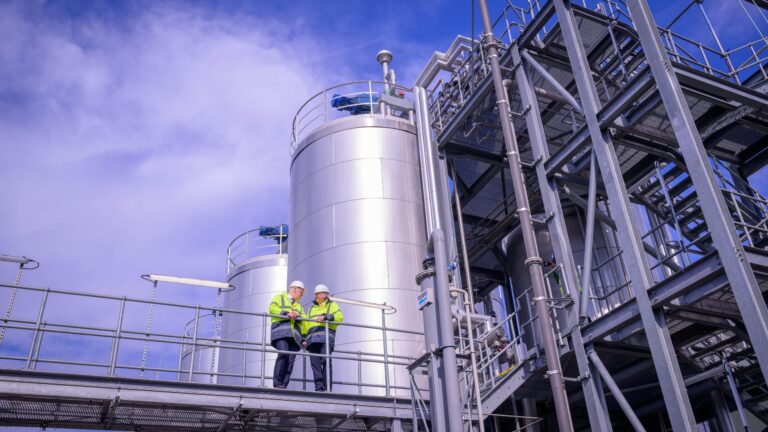
Celtic Renewables is one of the only companies worldwide using the ABE (acetone-butanol-ethanol) fermentation process to produce green chemicals at full industrial scale.
It has now been catapulted into the spotlight after the recently published Project Willow report cited ABE biorefining as one of just nine credible options to secure the long-term future of Grangemouth while forging a new low carbon path.
Celtic Renewables takes by-products and waste from industries like food, drink and agriculture (including residues from whisky distillation) and converts them into green chemicals for use in everyday products from pharmaceuticals to cosmetics.
Landmark moment
While its technology has been many years in development and Celtic Renewables now has its first manufacturing plant in the heart of Grangemouth, the identification of ABE biorefining as a priority technology pathway in this feasibility study is a “landmark moment” according to its CEO, Mark Simmers.
He said: “More than 300 low-carbon technologies were evaluated to see what could be effectively deployed in Grangemouth to unlock its future potential, and this was whittled down to just nine – including ABE biorefining.
“It is incredibly exciting to see a technology that we have developed, patented and proven being championed in this way. It sends a clear message to stakeholders and investors about the viability and scalability of what we do, and our potential to position Scotland at the forefront of the global green chemical revolution.”
Vision for Scotland
Project Willow was commissioned by Petroineos and funded by the UK and Scottish governments following the decision by Petroineos’ to decommission its oil refinery in Grangemouth. The £1.5m report outlines a long-term vision to establish Scotland’s industrial heartland as a low carbon manufacturing hub, focusing on nine priority areas identified as most viable.
Scotland’s First Minister John Swinney toured Celtic Renewables’ ABE facility on the day the report launched.
Mark Simmers says the company’s world-leading biorefinery epitomises the Just Transition to a low carbon future producing green chemicals (bio acetone, bio butanol, and bio ethanol) from by-products and waste.
He added: “There are many reasons why we chose Grangemouth as the site for our manufacturing plant including access to utilities, available land, and workers with great skills that can transition into what we do.
“We have an immediate opportunity to scale this process here in Grangemouth creating economic growth and new employment.
“There is a huge amount of capital in the private investment market, and we know there is an appetite to invest in the right low carbon opportunities, developed in the right way. We hope the release of this report will help pave the way to unlocking those opportunities.”
Image credit: Sandy Young